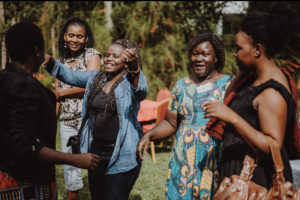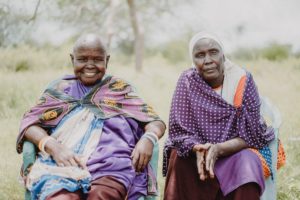Dostoyevsky famously said, “Love in action is a harsh and dreadful thing compared to love in dreams.” And in a sense, much of my interactions with East African partners feels like a reckoning with this statement. First, because they are living proof that it is true – that loving our community will likely cost us dearly. But secondly, because they show me over and over again that, despite the cost, it can also be a way of living into a paradox of abundance.
Here in the West, we focus almost exclusively on material and financial poverty – more or less eager to feed, clothe, shelter, and educate the “poor.” However, as those who have spent any time with the so-called poor around the world will tell you, once we truly encounter their lives, our own poverty is also exposed. Often, it is a poverty of relationship, a poverty of love.
The poverty of my love and imagination; the poverty of justice and equality in my community; the poverty of my repentance and restitution; all these feel as if they are being exposed every time I hear their stories.
 I’ll never forget what Janna Moats once said about these leaders. “Their realities defy our understanding of a life full and well lived,” she said. “Their day to day looks like what most of us have worked hard to avoid.” And yet, the Local Experts have hope when no one else does. These are people that stand in the middle of the chaos, one person, one family, one mother, one child at a time.
I’ll never forget what Janna Moats once said about these leaders. “Their realities defy our understanding of a life full and well lived,” she said. “Their day to day looks like what most of us have worked hard to avoid.” And yet, the Local Experts have hope when no one else does. These are people that stand in the middle of the chaos, one person, one family, one mother, one child at a time.
In my relationship with Social Innovators through six years of working for Loom, I was continually inspired, even compelled, by witnessing the ways in which their lives are rich in this counterintuitive love. As Dorothy Day put it: “there is nothing that we can do but love, and, dear God, please enlarge our hearts to love each other, to love our neighbor, to love our enemy as well as our friend.”
I saw this in the faces of teachers in Engikaret, and the bright-eyed children walking through the desert to a school that twenty years ago was only a dream.

I saw it in the laughter of Mama Anna and Mama Paulina, elders of their small community who fought fiercely to see a school and water supply meet their needs.
I saw it in the tenacity of leaders like Edward, Jacinta, Geoff, Penninah, Edmond, Miriam, Irene, Bosco, and so many others who refused to accept that pain and poverty would have the last word.
Thanks to them, I know first-hand what it means to be confronted with my own tendencies towards self-absorption, inaction, or comfort. It has sometimes been painful to have my own poverty exposed, rather than focusing on the poverty of others. But mostly, I have found it deeply rewarding as I have learned from and listened alongside each of these leaders “of whom the world is not worthy.” For this revelation is also an invitation – an opportunity to step into our own school of love, and allow the so-called poor to lead the way.








